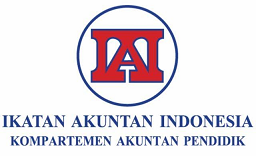DAMPAK PANDEMI COVID-19 TERHADAP KESEHATAN PERBANKAN SYARIAH DI INDONESIA : SEBUAH TINJAUAN METODE RGEC
Abstract
The purpose of this study is to answer the debate regarding the impact of the Covid-19 pandemic on the soundness of Islamic banks in Indonesia. In this study, the soundness of Islamic banking is measured using the RGEC method. The object of the research is focused on all Islamic banking companies operating in Indonesia with a total population of 14 companies. The data is the annual reports of company in the period before and after the pandemic, namely 2019 and 2020 period. After the sample selection process was carried out, only 12 companies remained that met the criteria for further analysis. The data analysis technique used descriptive statistical analysis and different tests with paired sample t-test and wilcoxon signed-rank test which had previously passed the normality test. The results showed that only the capital adequacy ratio indicator experienced significant differences before and after the Covid-19 pandemic in Indonesia, while the other three indicators showed no significant differences. This indicates that Islamic banking is still quite capable of overcoming the impact of the pandemic so that it does not have a serious effect on the soundness of Islamic banking
Downloads
References
Bank Indonesia. (2011). Regulation Number 13/1/PBI/2011 concerning the assessment of the soundness of banks. Jakarta: Bank Indonesia.
Bank Indonesia. (2011). Form Letter Number 13/24/DPNP/2011. Jakarta: Bank Indonesia
Bank Indonesia. (2011). Form Letter Number 12/13/DPBS/2010. Jakrata: Bank Indonesia.
Baldwin, R., & Weder di Mauro, B. (2020). Economics in the Time of COVID-19. CEPR press.
Barua, B., & Barua, S. (2020). COVID-19 implications for banks: the case of an emerging economy. Available at SSRN 3646961.
Beck, T. (2020). Finance in the time of coronavirus. Centre for Economic Policy Research.
Candera, M., Muslimin, A., & Permatasari, D. (2021). Banking Financial Performance Before and During the Covid 19 Pandemic in Indonesia: Analysis of Comparison Between Islamic and Conventional Banking. Information Technology of Industry, 9(1), 976–986.
Goodell, J. W. (2020). COVID-19 and finance: Agendas for future research. Finance Research Letters, 3(5), 101–112.
Hassan, M. K., & Aliyu, S. (2018). A contemporary survey of Islamic banking literature. Journal of Financial Stability, 34, 12–43.
IMF. (2020). The great lockdown: worst economic downturn since the great depression. https://blogs.imf.org/2020/04/14/the-great-lockdown-worst-economic-downturn-since-the-great-depression/
McKibbin, W., & Fernando, R. (2020). The economic impact of COVID-19. Economics in the Time of COVID-19. Baldwin, B. Weder Di Mauro (Red.). Centre for Economic Policy Research (CEPR), Londyn, 45–51.
Miah, M. D., Suzuki, Y., & Uddin, S. S. . (2021). The impact of COVID-19 on Islamic banks in Bangladesh : a perspective o fMarxian “circuit of merchant’s capital". Journal of Islamic Accounting and Business Research, 1759–0817.
Salsabilla, A., Azhari, A. R., Wahyudi, R., Pambudi, D. S., & Riduwan, R. (2021). Impact of the Covid 19 Pandemic on The Profitability Of Islamic Banks In Indonesia. In Annual Conference of Ihtifaz: Islamic Economics, Finance, and Banking, 2(2), 61–69.
Suharto, A. F. H. (2021). Sharia finance key for creating economic stability: Finance Minister. https://en.antaranews.com/news/185758/sharia-finance-key-for-creating-economic-stability-finance-minister
Wahyudi, R., Diniyya, A. A., Satyarini, J. N. E., & Maulida, S. (2020). The Effect of Debt-Based Financing and Equity-Based Financing on Islamic Banks Profitability in Indonesia. International Journal of Islamic Business and Economics (IJIBEC), 4(2), 106–114.
Wijayanti, S., & Afifi, Z. (2020). Pandemic impact of Covid-19 on the health of syariah bank. International Journal of Economics, Business and Accounting Research (IJEBAR), 4(4), 1060–1067.
World Bank. (2020). The global economic outlook during the COVID-19 pandemic : achanged world. http://www.worldbank.org/en/news/feature/2020/06/08/the-global-economic-outlook-during-the-covid-19-pandemic-a-changed-world

This work is licensed under a Creative Commons Attribution-NonCommercial-ShareAlike 4.0 International License.
Jurnal Akutansi dan Keuangan allows readers to read, download, copy, distribute, print, search, or link to the full texts of its articles and allow readers to use them for any other lawful purpose. The journal allows the author(s) to hold the copyright without restrictions. Finally, the journal allows the author(s) to retain publishing rights without restrictions
Authors are allowed to archive their submitted article in an open access repository
Authors are allowed to archive the final published article in an open access repository with an acknowledgment of its initial publication in this journal







